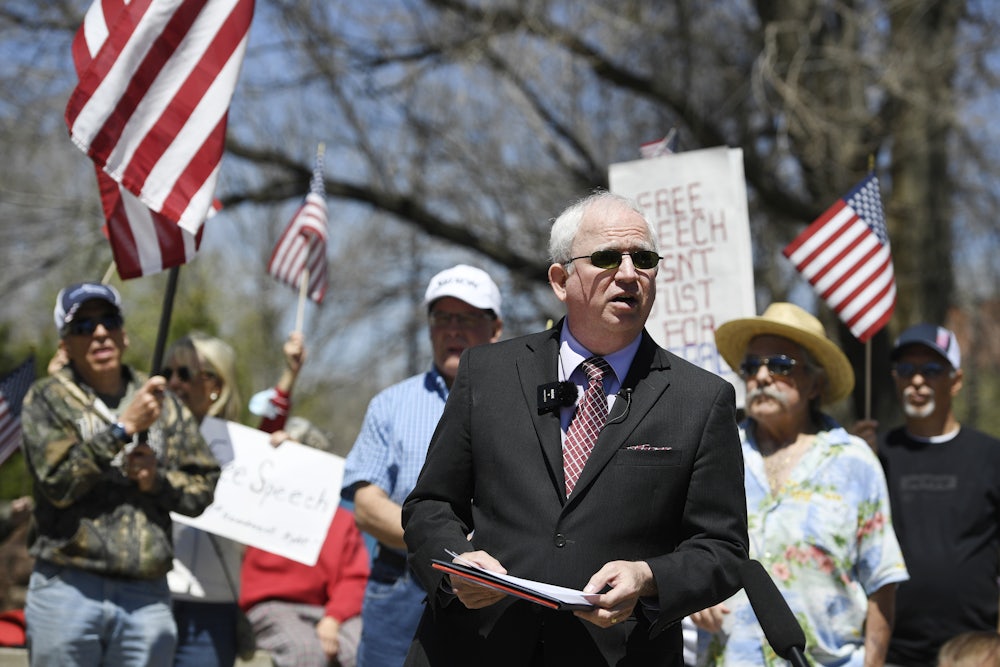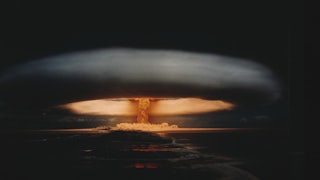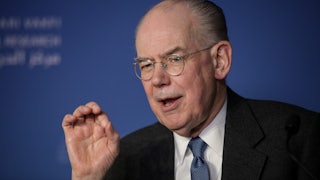Here’s what happened this week
Arguably one of the most important developments of the January 6 investigation to date came into public view late Wednesday through a new legal filing from the select committee that says it has evidence that Donald Trump and some of his campaign allies “engaged in a criminal conspiracy to defraud the United States.” The filing says the committee has enough evidence to show that Trump and his allies broke multiple laws in trying to block Congress from certifying the 2020 election.
“The Select Committee also has a good-faith basis for concluding that the President and members of his Campaign engaged in a criminal conspiracy to defraud the United States,” the filing read.
The filing is the first time the committee’s lawyers have so specifically explained their theory for how Trump may have broken laws in trying to stay in office. The panel suggests in the new filing that Trump’s persistent lying about how the election was stolen constituted, in the words of The New York Times, “common law fraud.” In the filing, the select committee lawyers also said they have evidence that conservative lawyer John Eastman and others could face criminal charges such as committing conspiracy to defraud the American people and obstructing official proceedings of Congress.
The evidence included in the new filings is limited, but it does show that testimony from longtime Trump communications aide Jason Miller was key, as was testimony from then–White House chief of staff Mark Meadows’s adviser Ben Williamson, national security adviser Keith Kellogg, Mike Pence lawyer Greg Jacob, and Pence chief of staff Marc Short, among others.
The evidence in the filing includes email exchanges between Jacob and Eastman that get heated. At one point, Jacob writes to Eastman that “thanks to your bullshit, we are now under siege.” This was when Jacob, along with Pence, was being moved between secure locations during the Capitol riot. The emails show that Jacob strongly disagreed with Eastman’s arguments for how certification of the 2020 election could be stalled or blocked entirely and thrown back to state legislatures.
The context for how the filing came to light is important, as well. Essentially, Eastman was trying to convince a judge to prevent the committee’s subpoena of documents in Eastman’s possession. Eastman had been arguing that those documents were protected through attorney-client privilege. The committee’s response was that attorney-client privilege does not include information between an attorney and client that could be related to hiding or advancing a crime. Eastman shot back that there was “no evidence” of that exception.
And that’s what made the committee respond with the filing. “The evidence supports an inference that President Trump, plaintiff and several others entered into an agreement to defraud the United States by interfering with the election certification process, disseminating false information about election fraud, and pressuring state officials to alter state election results and federal officials to assist in that effort,” the filing said.
An underlying theme of the filing is that it offers more details about Team Pence’s whereabouts and thinking that day. Besides the emails between Jacob and Eastman, another piece of evidence—Trump’s private schedule—shows a call with then-Senator Kelly Loeffler at 11:17 a.m. and then a call with Pence at 11:20 a.m. Clearly, Pence’s team was in direct contact with the key figures who wanted Pence to stop the certification proceedings.
Whom to watch?
The blockbuster filing by attorneys for the committee named several key names, and it’s worth watching what these figures do next. The committee released excerpts from multiple depositions with top aides to Trump and Pence, such as campaign adviser Jason Miller and Pence counsel Greg Jacob.
Miller detailed a conversation between Trump and campaign aide Matt Oczkowski, who “delivered to the President in pretty blunt terms that he was going to lose.” The filings also included emails from Jacob to Eastman, in which Jacob slammed the attorney for trying to concoct ways for Pence to overturn the election on January 6.
Along with awaiting more details from the depositions of Miller, Jacob, and other officials, it is worth watching to see what Eastman does next. He threw down a gauntlet at the committee, and it threw a bigger one back at him. What’s his next move? Charles Burnham, Eastman’s attorney, told Politico that “we look forward to responding in due course.”
But perhaps the most consequential figure in the coming days will be U.S. District Court Judge David Carter, who must determine whether more of Eastman’s records are protected by attorney-client privilege. The filings, indicating evidence of potential illegal activity, may convince Carter that Eastman’s emails held by his former employer, Chapman University, which he has sued to block the panel from obtaining, are not protected by that privilege. Carter has previously ruled against Eastman, rejecting his attempts to shield his records and ordering him to quickly review thousands of pages of emails to determine which he believes are protected by attorney-client privilege.
The committee is a legislative panel and has no authority to charge Trump or anyone else with a crime. But the filings released this week may provide an indication of what a potential criminal referral from the committee to the Justice Department would look like. The committee’s next steps will be critical as it wraps up its depositions and prepares for public hearings in the coming weeks.
Who got subpoenaed
The committee this week issued an additional six subpoenas to individuals “who promoted false claims that the 2020 presidential election was fraudulent and participated in, or encouraged, various actions based on those false claims.” The subpoenas were issued to:
- Cleta Mitchell, a conservative attorney who participated in the phone call in which Trump asked the Georgia secretary of state to “find” enough votes to overturn his loss, and who was in contact with members of Congress to promote false election claims
- Kenneth Chesebro, an attorney who supported using fake slates of electors in key swing states that Trump lost
- Christina Bobb, an attorney who the committee believes was involved in drafting an executive order to direct federal agencies to seize voting machines, and who was present with Rudy Giuliani’s legal team at the Willard Hotel on January 6, 2021
- Katherine Friess, an attorney who the committee believes was involved in drafting an executive order to direct federal agencies to seize voting machines, and who traveled to Michigan in an attempt to obtain voting data
- Kurt Olsen, an attorney who helped prepare a draft executive order to direct the Justice Department to subvert the election, and who had multiple calls with Trump on January 6
- Phillip Kline, who helped convene a meeting between Trump and more than 300 state legislators, many of whom later sent a letter to Pence urging him to delay the electoral certification
Friess is currently suing the committee to block it from obtaining her phone records.
Separately on Thursday, the committee issued a subpoena to Kimberly Guilfoyle, who is in a relationship with Donald Trump Jr. In a statement, committee Chairman Bennie Thompson and Vice Chair Liz Cheney said that Guilfoyle “apparently played a key role organizing and raising funds” for the rally that preceded the attack on the Capitol. Thompson and Cheney also said that Guilfoyle had “backed out of her original commitment to provide a voluntary interview,” precipitating the need to issue a subpoena.
Further reading
For those looking for a little light reading, it is worth perusing the court filings alleging that Trump illegally obstructed the counting of electoral votes. The Washington Post has good analysis of the criminal referral that the committee may be preparing. Another Post story details the select committee’s interest in a “simmering feud” on the Ellipse between Stop the Steal rally organizers. It is also worth reading more about Joshua James, the Oath Keepers member who pleaded guilty to seditious conspiracy and obstruction of an official proceeding this week.
Best quote of the week on January 6
“Respectfully, it was gravely, gravely irresponsible for you to entice the President with an academic theory that had no legal viability, and that you well know we would lose before any judge who heard and decided the case. And if the courts declined to hear it, I suppose it could only be decided in the streets. The knowing amplification of that theory through numerous surrogates, whipping large numbers of people into a frenzy over something with no chance of ever attaining legal force through actual process of law, has led us to where we are.”—Former Pence counsel Greg Jacob to Trump attorney John Eastman on January 6.








